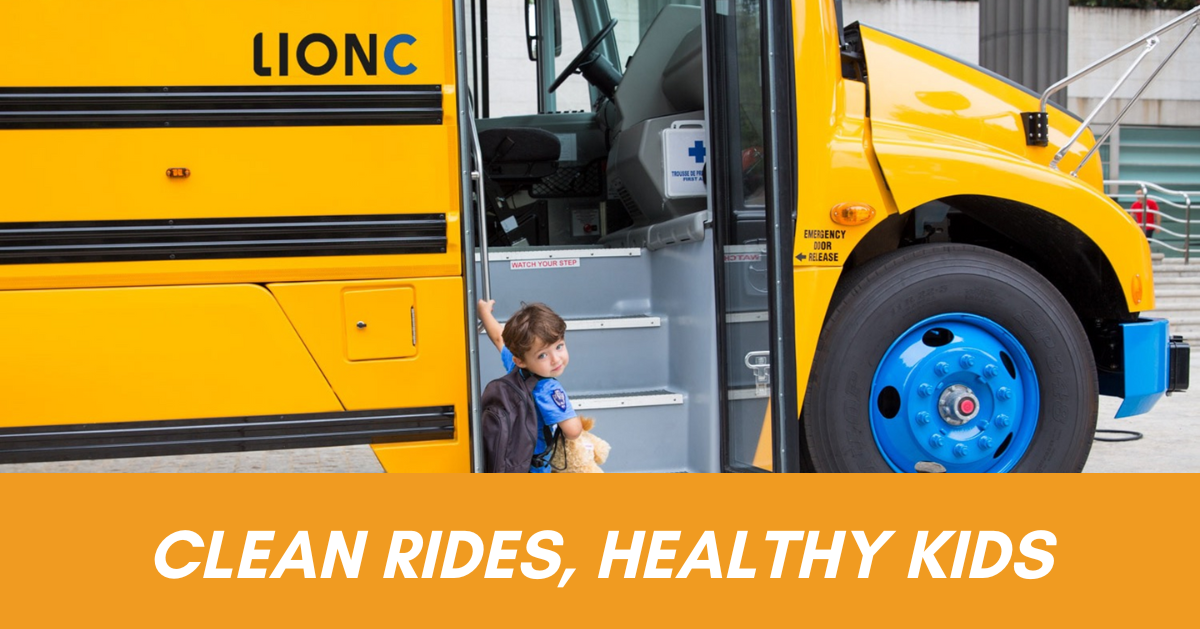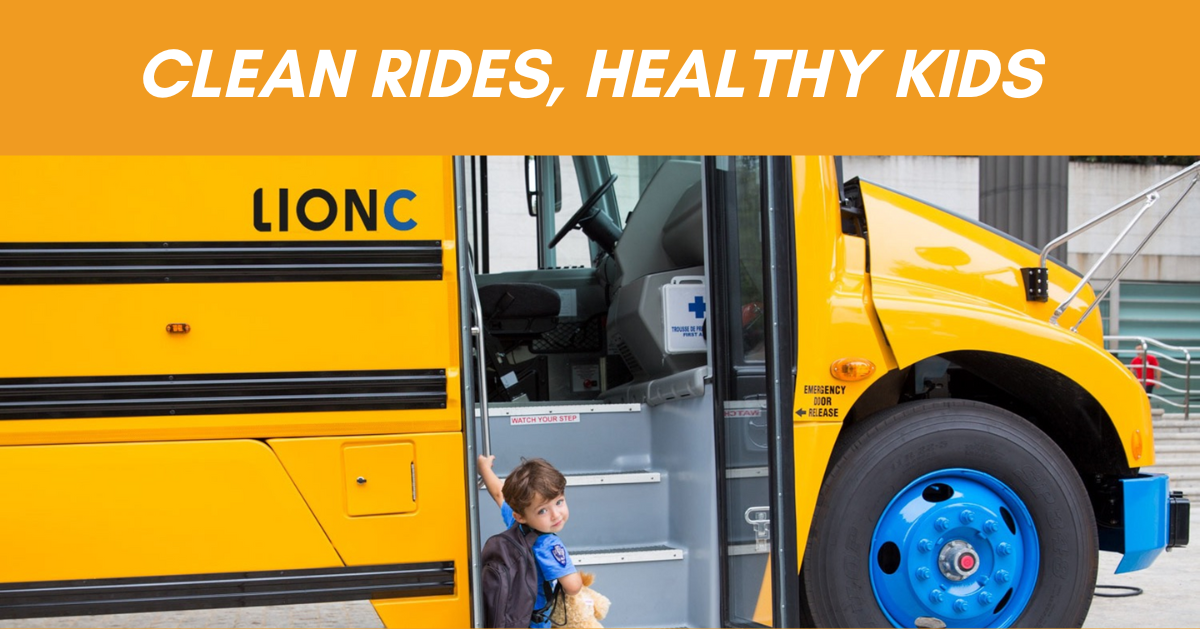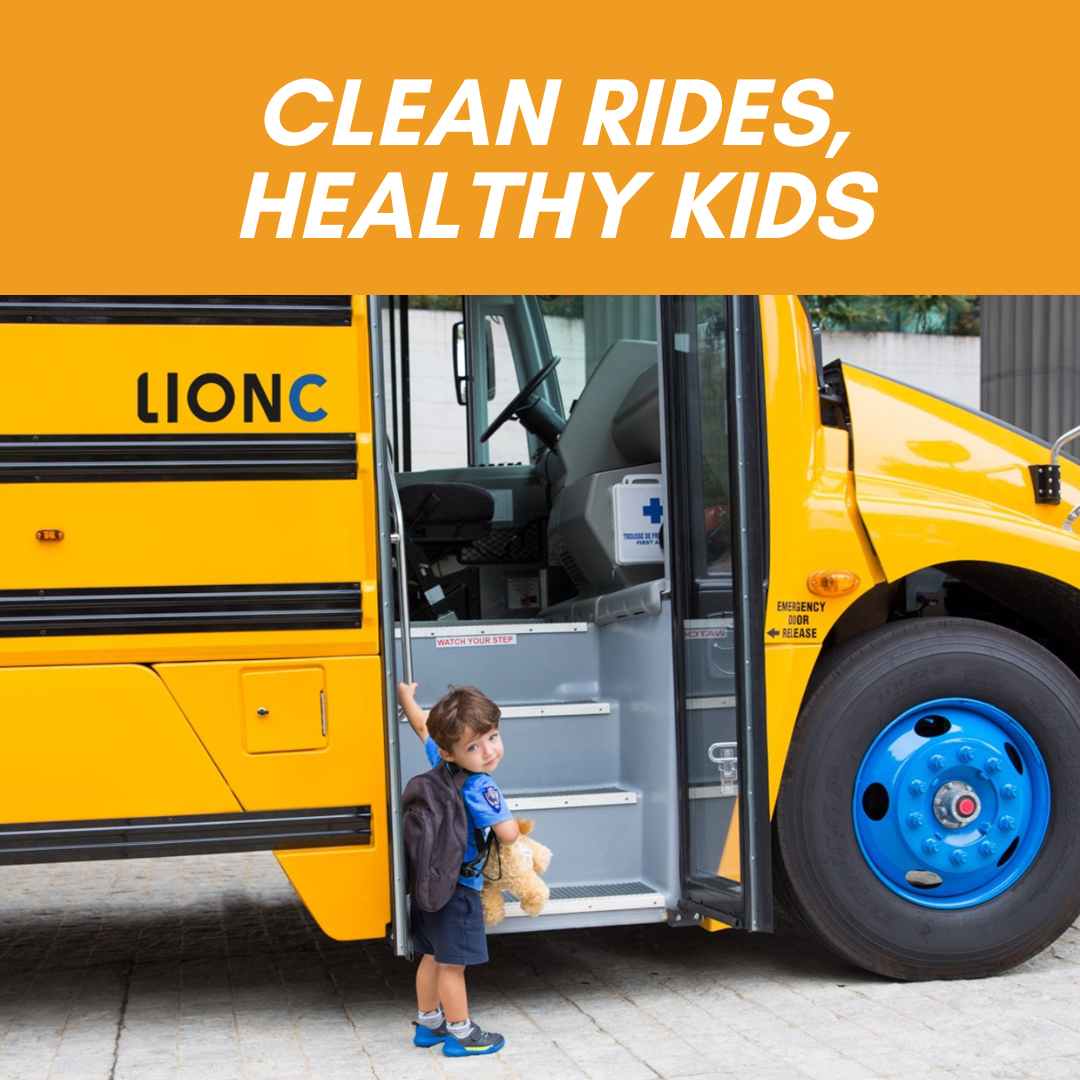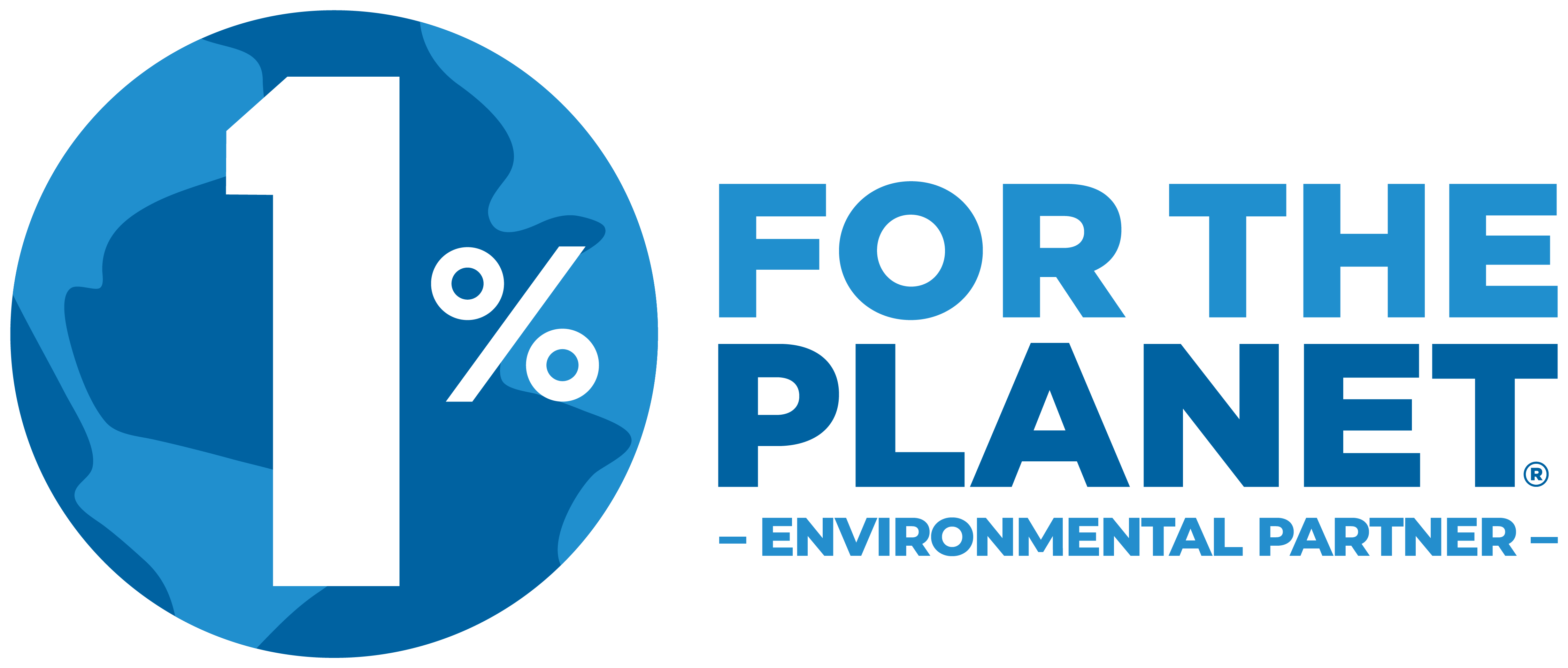Electric School Bus Advocacy Toolkit
This toolkit gives clean energy advocates the means to engage with the public on Electric School Buses and the value they would bring to Wisconsin.
Every day, more than 25 million American children rely on school buses for safe transport to and from school, collectively covering over three billion miles each year. However, the exhaust from these buses can harm human health, particularly for children whose lungs are still developing. To address this issue, the Clean School Bus Program provides rebates and grants to replace existing diesel and gas-powered buses with cleaner models. This initiative aims to improve air quality as well as the safety and well-being of our students, their bus drivers, and the surrounding communities.
The EPA has made $500 million in rebate funding available for the 2024 Clean School Bus Rebate Program. The application period opened on September 26 and will remain open until January 9, 2025. This is the third rebate funding opportunity through the multi-year funding program. The Environmental Protection Agency (EPA) launched this program to help school districts purchase new, cleaner school buses for little or no cost.
The EPA is prioritizes applications from high-need, rural, and Tribal school districts. School Districts are eligible to receive rebates of up to $325,000 per school bus, up to 50 buses per district. These funds are also able to cover the cost of charging infrastructure.
Visual Assets
Social Media
Facebook / LinkedIn
The upfront cost of about $375,000 for an electric bus is a significant barrier. Fortunately, the Environmental Protection Agency’s (EPA) Clean School Bus Program allows school districts in all 50 states to replace old diesel buses with new electric buses at no cost in most cases. #CleanRidesHealthyKids https://bit.ly/CleanRidesHealthyKids
More than 25 million American children rely on school buses for safe transportation! Student commutes cover over three billion miles every school year; for most students, that means exposure to harmful exposure to diesel exhaust. #CleanRidesHealthyKids https://bit.ly/CleanRidesHealthyKids
There is no safe level of diesel exhaust exposure. The exhaust negatively impacts human health, particularly for children whose lungs are still developing. Improve the air quality, safety, and well-being of students, drivers, and their communities! #CleanRidesHealthyKids https://bit.ly/CleanRidesHealthyKids
Switching to electric school buses will help keep money in Wisconsin as we transition to renewable energy. Rather than spending millions of dollars on diesel fuel each year, we can utilize energy produced in state and promote a healthier local economy. #CleanRidesHealthyKids https://bit.ly/CleanRidesHealthyKids
There is no known safe level of exposure to diesel exhaust for children, switching to electric buses means healthier kids and communities! #CleanRidesHealthyKids https://bit.ly/CleanRidesHealthyKids
Electric school buses can save more than $170,000 on fuel and maintenance throughout their lifespan! Clean rides mean healthy kids. #CleanRidesHealthyKids https://bit.ly/CleanRidesHealthyKids
Even in Wisconsin, with coal and other fossil fuel electricity generation, driving electric produces less pollution than a diesel bus. #CleanRidesHealthyKids https://bit.ly/CleanRidesHealthyKids
Switching to electric school buses will help keep money in Wisconsin as we transition to renewable energy. They also offer clean and healthy rides for the students they carry and the communities they drive through! #CleanRidesHealthyKids https://bit.ly/CleanRidesHealthyKids
Wisconsin’s lack of petroleum production means that switching to electric buses can keep our energy dollars in the state, support local jobs, and contribute to the state’s general economic growth. #CleanRidesHealthyKids
Even in Wisconsin, with coal and other fossil fuel electricity generation, driving electric produces less pollution than a diesel bus. #CleanRidesHealthyKids
On average, diesel buses travel 6 miles per gallon, while electric buses boost that efficiency to an equivalent of 17 mpg. Electric school buses can save more than $170,000 on fuel and maintenance throughout their lifespan. #CleanRidesHealthyKids






